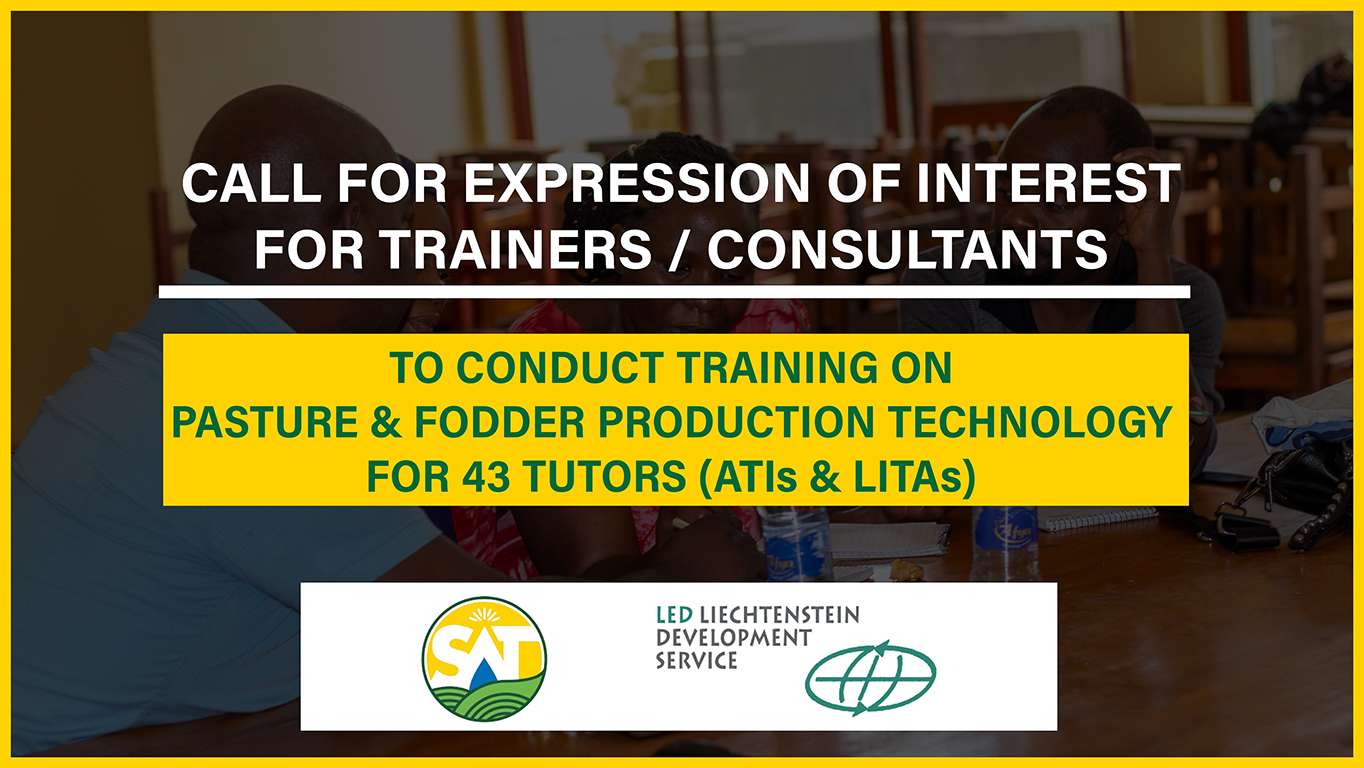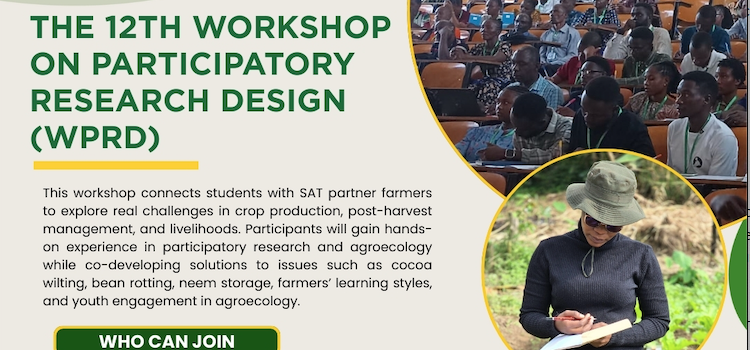Empowering Lives: Transformative Stories from the GAPE Project (2021-2023)

The GAPE Project (2021-2023) focused on supporting girls in a vulnerable situation through a holistic approach that included both personal and social emancipation and economic empowerment. The project aimed at building the confidence of girls and their ability to stand up for their rights on one hand and provide them with vocational training to support them in creation of micro businesses around agroecology and permaculture.
With support from the French Embassy, a consortium of Sustainable Agriculture Tanzania (SAT) and Msichana Initiative empowered 1820 girls in Kongwa and Nzega Districts in Dodoma and Tabora Regions, respectively, through a dual intervention that provided both psychological and social support, as well as trainings in agroecology and the agricultural value chain to integrate them into the labor market by creating micro businesses. The project beneficiaries constituted girls who dropped out of school (40%), young mothers (30%), victims of sexual and gender-based violence (20%), girls with special needs (e.g. disability, 5%), but also men aged 15 to 35 (5%).

For many beneficiaries, the participation in the project was a real gamechanger. Meet Veronica, Maria and Neema - three young women on the path of success, who have become shining examples to the community.
The Power of Determination and Support: Veronica's Rise to Success

Veronica Williams is a young entrepreneur from Kitangiri Village in Tabora's Nzega district. Her business began with a small flock of ducks that she raised for both eggs and meat. With the help of SAT's trainings and support, she was able to improve her poultry production methods, resulting in an increase in her annual income.
She didn't stop there, though. She was able to diversify her income streams thanks to the knowledge and skills she gained through the GAPE project. She bought a small salon and started a hair and beauty business, which gave her an extra source of income.
Veronica also learned the value of saving and lending. She joined a local savings group and saved enough money to buy more ducks and expand her poultry farm. The group also gave her a small loan to help her buy more hair and beauty products for her salon.
Her poultry farm was known for producing high-quality eggs and meat, and her salon for providing excellent hair and beauty services. Customers began to arrive from neighboring villages and even the nearby town. Her business enabled her to pay for her own education and that of her siblings.
Veronica's success was not unnoticed. She now serves as a role model for other young girls and has earned the respect of her community. She was asked to speak to other young entrepreneurs in the region about her story and experiences and was also invited to attend a number of workshops and trainings hosted by SAT and other organizations. She was able to learn new skills and techniques through these opportunities, which she then applied to her businesses, resulting in even more growth and success.
Her ultimate goal, however, is not only to be successful in her own businesses, but also to assist other young people in her community in achieving the same level of success. Using her own experiences as an example, she began mentoring and training other young entrepreneurs in her village. She also began to advocate for more community support for young entrepreneurs, such as access to finance and training.
Veronica has been able to build a thriving business that not only supports herself and her family, but also contributes to the development of her community. She is grateful for the GAPE project's education and support, which has enabled her to achieve her goals and improve her standard of living.
From Dropout to Entrepreneur: Maria's Journey of Empowerment

Maria, a 24-year-old mother from Ngukumo village, had always wanted to go to school and make a better life for herself and her family. But, like many other young women in her community, she encountered unexpected challenges when she became pregnant and dropped out of high school. Despite these setbacks, Maria was adamant about making a better life for herself and her child. That's when she learned about the Upendo Group, a local organization that provided saving and lending training.
"I never thought I'd be able to save money," Maria said. "However, the Upendo Group taught me how to budget and manage my finances, and as a result, I was able to save 253 shares (each 1,000 TSh), 27,000 TSh for social funds, and 38,000 TSh for entrepreneurship."
Maria invested her savings by expanding her tailoring business. She used the funds to purchase additional fabrics and supplies, and she was soon able to take on more customers and earn more money.
She also decided to do seasonal farming, planting 2 acres of maize and beans. She began implementing organic farming methods she learned in the training with the knowledge she gained from the Upendo Group. "I couldn't believe how much of a difference it made," Maria exclaimed. "I was able to increase my yields while also obtaining higher prices for my crops. I anticipate a higher yield after implementing organic agriculture in my field."
Her success in agriculture led to another opportunity; she began to plant vegetables on her 0.25 acre for income and personal consumption. "I'm so proud of everything I've accomplished," Maria said. "I never imagined myself as a successful business woman and farmer, but with the assistance of the Upendo Group, I was able to make it happen."
Maria's perseverance, hard work, and eagerness to learn new skills have resulted in a better future for herself and her family. She has improved not only her own life, but also the lives of those in her community. And, with plans to expand her business and farm in the future, there is no doubt that she will continue to make a positive difference in her community in the years ahead.
From Struggling Farmer to Organic Agriculture Expert: Neema's Journey

Neema, a 20-year-old Tanzanian woman, had always been interested in agriculture. However, due to the high cost of agriculture inputs like hybrid seeds and industrial fertilizer, she had struggled to make a profit from her crops. Everything changed for her after she attended a series of organic agriculture module sessions provided by SAT under GAPE project.
"I felt like I had a real understanding of how to cultivate my land for the first time. I learned about using natural methods to improve soil health and yields, such as composting and crop rotation." Neema said.
With her newfound knowledge, Neema decided to invest in her agricultural endeavors. She grew 1.5 acres of mixed crops this year, including maize and groundnuts. And, to her surprise, the results were spectacular. "I couldn't believe it!" Neema exclaimed. "I was able to reduce my costs by using natural methods while still harvesting a significantly higher yield than before. I was able to recoup the cultivation costs and even make a profit.”
She took a loan from the saving and lending group and invested in 0.75 acres of horticulture in addition to her seasonal crop production. She grew organic tomatoes here, which she plans to sell in nearby markets and to her neighbors. "I'm incredibly proud to be a part of this project," Neema said. "It's not just about the money; it's about the sense of accomplishment and self-sufficiency that comes from growing my own food and providing for my family."
Her neighbors and peers, who had witnessed her previous struggles, were astounded by the improvement in her crops and income. They started approaching her for advice and help in improving their own farms and gardens. "I couldn't believe how much respect my community had for me," Neema said. "I felt a real sense of purpose and responsibility to help others."
Neema decided to start some training to villagers and disseminate the education to other villagers, also called Farmer to Farmer training. Her hard work and dedication have led her to a brighter future, not only for her own but for her community as well. Her determination and willingness to embrace new ideas and to help others have led to a better life for her and her family, and serves as a shining example for others to follow.
Overcoming challenges, pursuing dreams, and contributing to community well-being
These stories – from Veronica's rise to success as a multifaceted business woman to Maria's journey of empowerment as a dropout turned entrepreneur, and Neema's transition from a struggling farmer to an advocate of organic agriculture – showcase the impressive combination of determination and support. These individuals not only reshaped their destinies but also became catalysts for positive change within their communities. They stand as living proof that overcoming challenges, pursuing dreams, and contributing to community well-being are achievable feats. The impact of the GAPE Project, evident in these stories, underscores the potential for positive change when empowerment becomes a shared endeavor.
This project was implemented by Sustainable Agriculture Tanzania (SAT) in collaboration with Msichana Initiative and financial support from the French Embassy under the supervision of FCS Trust.




.jpg)



